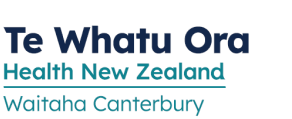What does it do?
Antacids are used to treat reflux, indigestion and heartburn.
Many types of antacids are available and they usually contain a few different medicines.
Aluminium hydroxide, calcium carbonate, magnesium (carbonate or hydroxide or trisilicate) and bicarbonate (sodium or potassium) are all antacids. They reduce stomach acid.
Some antacids also contain alginate or simeticone. Alginate forms a barrier over your stomach acid. Simeticone reduces bloating by breaking down gas bubbles in your stomach.
Before you start
- Some antacids contain sodium (salt). Tell your doctor if you have heart failure or kidney problems AND you are on a low-salt diet.
How should you take it?
Take antacids as directed.
They usually come as either chewable tablets or liquid.
Chew the tablets well before swallowing.
Shake the liquid well before each dose.
Can you take other medicines?
Some medicines available without a prescription may react with antacids including:
- iron supplements (e.g. Ferro-Tab®) – separate dose by two hours
Tell your pharmacist or doctor about all medicines or treatments that you may be taking, including vitamins, herbal products or recreational drugs.
What side effects might you notice?
Antacids are unlikely to cause any side effects.
| Side Effects | Recommended action |
|---|---|
|
Diarrhoea |
Can happen with antacids containing magnesium - tell your doctor if troublesome |
If you notice any other effects, discuss them with your doctor or pharmacist.
Other information:
- Antacids don't treat any underlying problems that might be causing reflux, indigestion or heartburn. Talk to your doctor if you need to take antacids regularly (every day for more than a week or two).
This leaflet contains important, but not all, information about this medicine.
Prepared by the MyMedicines Committee at Christchurch Hospital, Te Whatu Ora - Waitaha, New Zealand. March 2023
For more general information about this sheet and its contents, see: What does a My Medicines sheet cover?
Te Reo Māori
Te Reo Māori information sheets supported by Health Quality and Safety Commission New Zealand
Web links for this sheet in different formats
Click on buttons to copy web addresses for this leaflet:
If your browser does not automatically copy these links use its copy command instead.
About My Medicines
My Medicines Patient Information Leaflets (PILs) contain important, but not all, information about the medicines they describe.
For more information about the sheets, see: What does a My Medicines sheet cover?
My Medicines is developed by a team at Te Whatu Ora – Waitaha. Our team is made up of doctors, pharmacists, and a non-medical person to help us keep to plain language. We also discuss our information with specialist health professionals or groups when needed

